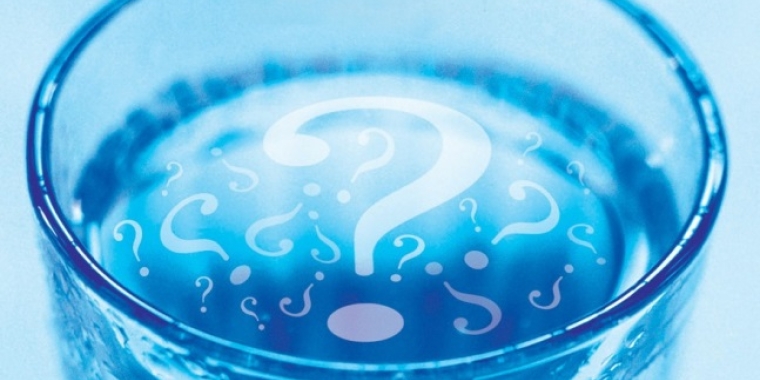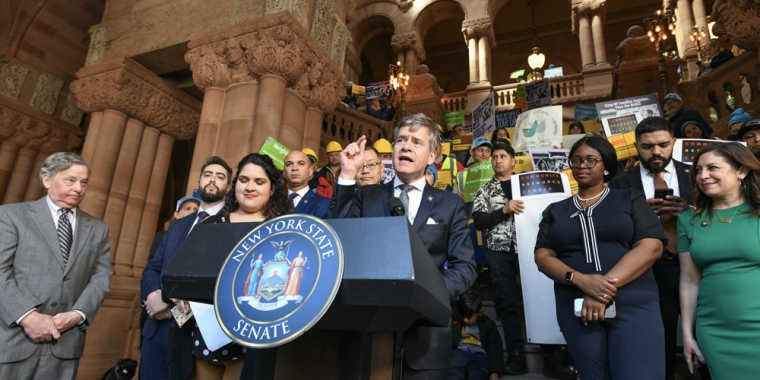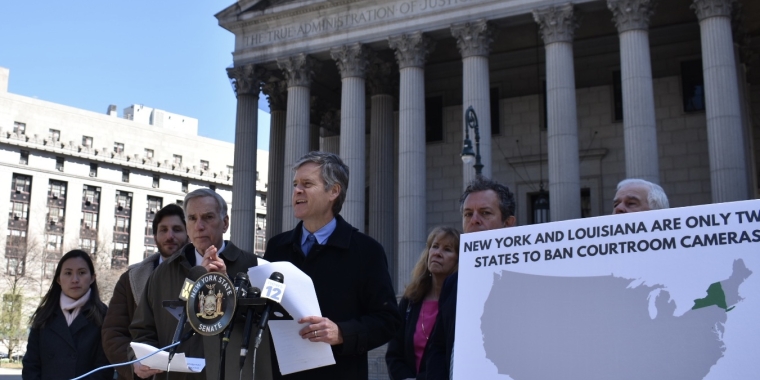
SENATOR HOYLMAN ANNOUNCES WATER SAFETY REFORM LEGISLATION IN ADVANCE OF HOOSICK FALLS HEARING
August 29, 2016
-
ISSUE:
- Water

Hoylman: What happened in Hoosick Falls is a stark indication that the Legislature can and must do more to proactively address water safety in a comprehensive way.”
NEW YORK – State Senator Brad Hoylman (D-Manhattan), Ranking Member of the Senate Environmental Conservation Committee, announced a package of bills today to address unregulated chemicals and potentially hazardous lead pipes in New York’s water supply. The legislation comes in response to growing state and national concerns over aging water infrastructure, inadequate federal and state regulation of chemical contaminants and the associated public health hazards.
The first bill would require the New York State Department of Health (DOH) to conduct periodic reviews of the U.S. Environmental Protection Agency’s (EPA) contaminant candidate list (CCL), a watch-list of drinking water contaminates – including Perfluorooctanoic acid (PFOA) -- that are not currently regulated under the Safe Drinking Water Act. Under Senator Hoylman’s legislation, DOH would regularly review the EPA’s CCL and determine whether New York should regulate any of the contaminants on the list above and beyond the EPA’s recommendations.
The second bill would require DOH, using information reported by local water suppliers, to create a centralized database of lead pipes to identify potential lead contamination in local drinking water supplies. While the federal Safe Drinking Water Act of 1986 limited the installation of new lead pipe infrastructure, in states like New York where water infrastructure can be up to a century old, it can be difficult to identify risks in the absence of accurate data. This “lead pipe census” bill would require local water suppliers to provide customers with a list of lead pipes in their water systems and instruct DOH to use these reports to create an online database and map of lead pipes within the state’s water systems. Doing so would make it easier for citizens and municipal and state government to identify potential hazards.
State Senator Brad Hoylman said: “One of the basic duties of government is to ensure that our constituents have a water supply that is safe and clean. But between an aging infrastructure and an ever-growing list of unregulated chemicals infiltrating our water systems, New Yorkers are justifiably concerned about the quality of their drinking water. What happened in Hoosick Falls is a stark indication that the Legislature can and must do more to proactively address water safety in a comprehensive way.”
Liz Moran, Water & Natural Resources Associate at Environmental Advocates of New York said: “New Yorkers should never have to worry about whether their water is safe to drink or will make them sick. The state cannot expect for someone else to get the job done and needs to be proactive following the crises in communities like Hoosick Falls, Petersburgh, and Newburgh, which are very likely occurring elsewhere unbeknownst to residents. This must include a statewide plan for water testing, and stepping up dangerously lax chemical regulation which has enabled industry to pollute our drinking water for decades. Environmental Advocates applauds Senator Hoylman for leading on this issue and driving the conversation for legislative action in 2017.”
Senator Hoylman, who along with Senate Democratic Conference Leader Andrea Stewart-Cousins called for water quality hearing back in June, is also the main sponsor of the Private Well Testing Act (S.7297), which would require DOH to test water from private wells and ensure that the water is consistent with state drinking water standards. An estimated 1 million homeowners in New York currently rely on private wells for their drinking water.
Share this Article or Press Release
Newsroom
Go to Newsroom

